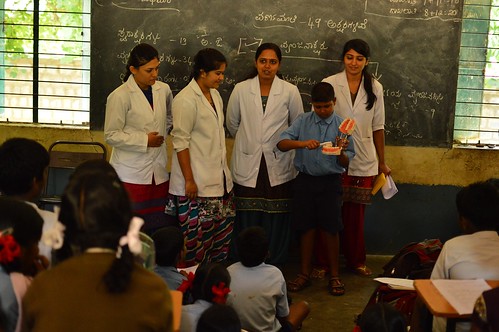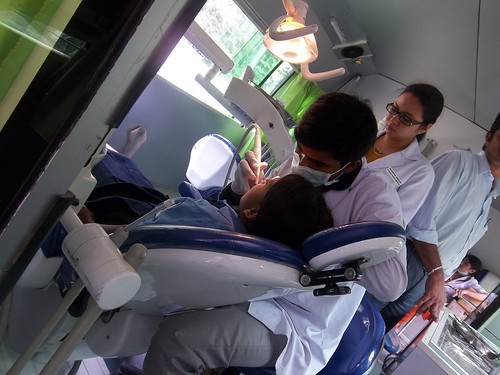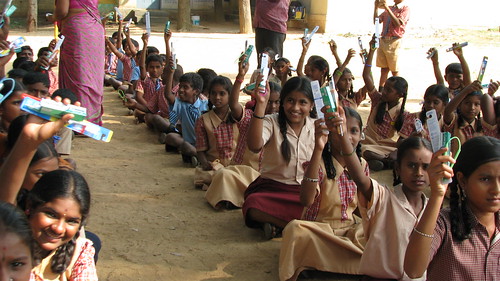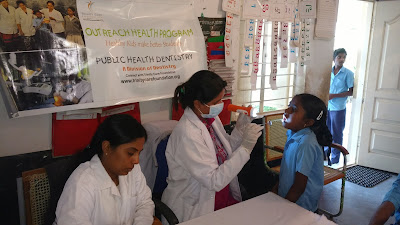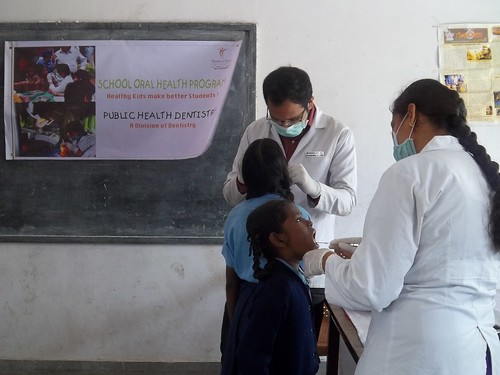School Oral Health Program in Bangalore !!!
If you intended to partner or support this public health dentistry initiative in Karnataka state, India, To Connect with us, ✍️ to [ support@trinitycarefoundation.org ] ✍️
Trinity Care Foundation is a Public Health Organization, has the Trust registration, PAN, TAN, 12A, 80G, Professional tax and FCRA. It is registered with NITI Ayog, Government of India. It is National Health Mission Partner in Karnataka state, India.
Contact Us :
email: support@trinitycarefoundation.org
tel: Dr. Thomas +91 9880396666 or Mr. Binu +91 9880358888
Meet us : #328, Akash Deep, 2nd Floor, Indiranagar 1st Stage,
CMH Road,Bangalore 560 038, Karnataka, India.
Direction – Map : https://goo.gl/maps/dF2rtWmazKk
Web: www.trinitycarefoundation.com : www.trinitycarefoundation.org
Impact : https://www.flickr.com/photos/trinitycarefoundation/albums
-------------------------------------***-----------------------------------------
- Poor oral health and untreated infections can have a significant impact on school aged children.
- Children have trouble eating and sleeping, and can experience speech impairments, trouble focusing and low self esteem.
- Dental disease can greatly reduce a child’s capacity to succeed in the educational environment.
- Children are often unable to verbalize their dental pain.
- Teachers may notice a child who is having difficulty attending to tasks or who is demonstrating the effects of pain (anxiety, fatigue, irritability, depression and withdrawal from normal activities).
- School nurses report a range of oral health problems such as dental caries, gingival disease, malocclusion (poor bite), loose teeth and oral trauma.
- Children who are missing teeth have to limit their food choices because of chewing problems, which may result in nutritionally inadequate diets.
- Inadequate nutrition during childhood can have a detrimental effect on children’s cognitive development and productivity in adulthood.
- The Trinity Care Foundation Oral Health Program supports oral health promotion and dental disease prevention in school-based programs for students in low-income schools from 1st standard through 10 standard [ 6 yrs to 16 yrs].
- The Trinity Care Foundation Oral Health Programs currently funds 59 schools throughout Bangalore Urban District, Karnataka state, India with small grants to promote oral health education, dental check-ups, treatments, oral health kits and provide a referral service to higher centers.
- Some schools also receive additional grant money to provide dental sealants !
If you intended to partner or support this public health dentistry initiative in Karnataka state, India, To Connect with us, ✍️ to [ support@trinitycarefoundation.org ] ✍️
Trinity Care Foundation is a Public Health Organization, has the Trust registration, PAN, TAN, 12A, 80G, Professional tax and FCRA. It is registered with NITI Ayog, Government of India. It is National Health Mission Partner in Karnataka state, India.
Contact Us :
email: support@trinitycarefoundation.org
tel: Dr. Thomas +91 9880396666 or Mr. Binu +91 9880358888
Meet us : #328, Akash Deep, 2nd Floor, Indiranagar 1st Stage,
CMH Road,Bangalore 560 038, Karnataka, India.
Direction – Map : https://goo.gl/maps/dF2rtWmazKk
Web: www.trinitycarefoundation.com : www.trinitycarefoundation.org
Impact : https://www.flickr.com/photos/trinitycarefoundation/albums
-------------------------------------***-----------------------------------------

